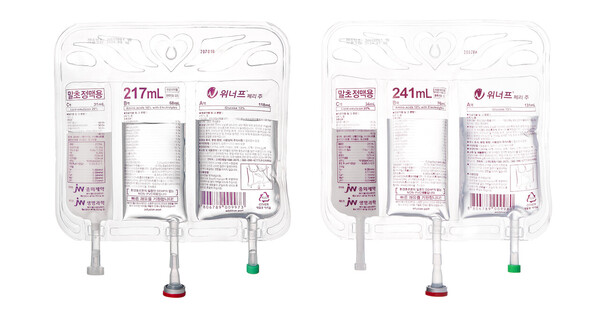Amid the controversy over the false positive GM (galactomannan) test due to total parenteral nutrition (TPN) products using Chinese glucose, makers are going all out to calm jitters by recalling products from hospitals.

According to pharmaceutical industry sources, the Korean pharma companies that manufactured infusion products using Chinese dextrose are recalling their products from hospitals or replacing them with other products.
The move came after a media report said patients injected with specific rehydration solutions showed a false positive response in the GM test, forcing some not infected by the fungus to receive an antifungal injection.
Ministry of Food and Drug Safety investigated and issued a notice through its “Medical Product Information Letter,” warning against the use of infusion products made by glucose supplied by China’s Shandong Tianli and the consequent analysis of GM test results.
The ministry explained that if hospitals conduct GM tests on patients who received TPN using the pertinent glucose, they can produce false positive diagnosis results due to galactomannan ingredients that remain in trace amounts of glucose.
The ministry especially named 14 products from the top-three infusion makers -- Dai Han Pharm (10), HK inno.N (one), and JW Life Science (three).
Despite the controversy, the industry emphasized that it has been coping with the problem since late last year, including a voluntary recall and replacement of related products to prevent confusion among medical workers and institutions.
“We have already sent a public notice to medical institutions on product recall and replacement to medical institutions,” an industry executive said. “The products have no problems themselves, but took such a stop on an ethical level.”
The executive noted that his company almost completed the recall in January, adding the situations are similar in other companies.
“We will send a letter once again now that the ministry has distributed its letter,” the official said.
Meanwhile, the ministry has prohibited the glucose material that caused the controversy over GM test false positive responses but stopped short of forcing the recall of such infusion products.
As a result of examining raw material and finished goods testing papers of the 14 products, the products showed little quality problems meeting permission standards, the ministry said, explaining the backgrounds for its non-recall decision.
According to related literature and experts’ advice, false-positive responses can also occur due to various other reasons, such as food and antibiotics, adding reasons for its decision not to recall the products.
The ministry told doctors and other medical professionals to check whether these raw materials were used when conducting fungal tests on patients and to take caution in their analyses.

